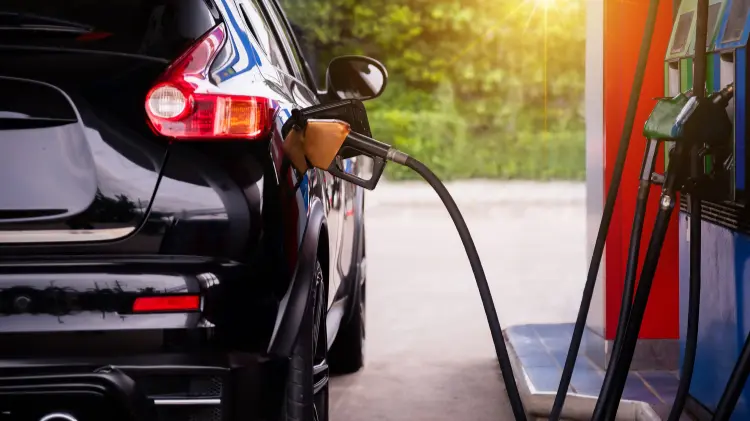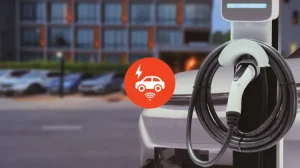There has been a significant increase in fuel prices recently, leading to the introduction of a fuel price cap in Hungary and many other European countries. However, this measure will not last forever, so it is worth trying to drive more economically to reduce fuel consumption. In this article, we will first outline the main factors that have led to the price hike. We then look at how to achieve the best fuel consumption while driving.
Why are fuel prices so high?
Higher fuel prices are the result of a complex economic process. To understand this, it is worth first looking at the factors that influence world prices and the recent events that have led to price changes. In the following, we will try to outline these as simply as possible.
Factors influencing crude oil price
Most of you probably know that gasoline used for vehicles is produced from crude oil. So to understand the underlying factors behind the rising prices, it is worth looking at the global oil market and the economic factors influencing crude oil prices.
Crude oil is the world’s primary energy source because it is relatively cheap to extract, transport and process. However, it is a non-renewable energy source, so there is only a finite amount available. As a result, there is a decreasing supply, and the market price is generally on an upward trend.
There are several types of crude oil on the market, of which the most important is the so-called Brent oil (OIL). In this analysis, we will therefore refer to the global price of this type of oil. But what is Brent oil and why is it so important? The different types of oil are defined by their quality and location of extraction. Brent oil is recovered from the North Sea. Its low density and sulfur content make it ideal to be refined into gasoline and associated products.

Looking at the average price of Brent crude oil, it is noticeable that while there was a significant drop in 2020, the price started to rise again in 2021-2022. The main driver of price changes is market supply and demand, which is strongly influenced by world events. Of course, the corona virus did not favor this industry either, so we don’t need to go back that far in time to understand the underlying causes.
The coronavirus pandemic starting in 2020 has led to a significant fall in transport and tourism worldwide. At the same time, oil demand has also fallen, by 25-30% according to analyses. The market has thus become oversupplied and oil stocks have built up to a large extent. With the easing of the pandemic restrictions, transport and tourism recovered, but oil production failed to return to pre-coronavirus levels and fuel shortages developed.
Fuel prices in Europe
In addition to the above factors, the rise in European prices is mainly due to fuel shortages caused by the war between Russia and Ukraine. Before the Ukrainian crisis, Russia supplied more than a quarter of the EU’s oil needs.
European countries have reacted in various ways to this situation, with some – including Hungary, Slovenia and Croatia – capping prices to protect consumers. Others, such as France, Italy, Germany and Bulgaria, have tried to reduce prices by reducing taxes imposed on fuel.
Looking at European prices in general, only Russia and Belarus can keep prices below €1. On average, prices have risen by more than 50 percent in the last year: a year ago, one liter of gasoline cost an average of €1.30, this year it has increased to €1.55. You can find the current fuel prices in Europe here.
Fuel prices in Hungary
The consumer price of gasoline and diesel in Hungary is determined by two factors: the global crude oil prices and the forint/dollar exchange rate. We have already covered how oil prices changed, and unfortunately the weakening forint has not helped to reduce fuel prices in Hungary either.
In Hungary, the price of gasoline and diesel is currently capped at HUF 480 per liter, and will remain so until October 2022 at least. However, only privately-owned vehicles, taxis and agricultural machinery will be able to benefit from the reduced prices. In August 2022, the market price of gasoline (Euro 95) was on average around 200 forints higher than the capped price.
How to reduce fuel consumption
Considering the above, we can expect further fuel price increase in the future. If you want to save money, it is worth switching to public transport or even cycling. But of course, in many cases we have no choice but to drive. We have put together some useful tips to help you cut fuel consumption. What’s more, these tricks are not only good for your wallet, but also for the environment.
Regular car maintenance
Did you know that an old or broken engine can increase fuel consumption by 4% on average, but if it’s a serious engine fault, it can be as much as 40%? So it’s a good idea to maintain your engine regularly and not to put off making the necessary repairs. It is also very important to change the oil regularly, as this will also help to reduce fuel consumption. The frequency of oil changes varies from car to car, but as a rule of thumb, oil changes should be carried out no more than once every 10,000 kilometers or once a year.
Don’t forget to check the condition of your tires: properly inflated tires can also reduce fuel consumption. It’s also worth choosing tires with the best possible energy class.
Get rid of extra weight
Fuel consumption is mainly determined by the weight of the car, with one person (80 kg) adding up to half a liter to the average consumption per 100 km. It is worth getting rid of excess luggage and heavy items in the car.
Plan your route in advance
Planning your route has several practical benefits: if you leave on time, you will drive more calmly and therefore more economically. Secondly, planning your route in advance will help you avoid longer or more congested routes.

Fortunately, nowadays there are many apps available to help you plan your route. For instance, you can waste a lot of fuel by driving around the city looking for a parking space. The Parker smart parking app helps you to avoid this: you can easily check where parking spaces are available. The system is currently available in the 5th and 13th districts of Budapest and in Pécs.
So how much can we save on average by using the app? Let’s say you’re looking for a parking space in the city center twice a week. In this case, you could save around 800 HUF at the capped price, and up to 1000-1200 HUF at market prices, depending on the car’s fuel consumption and the fuel type. Just think how much you can save if you regularly drive to the city center, for example to work. Not to mention the time saved and the lower CO2 emissions.
Fuel-efficient driving techniques
There are also many things you can do to reduce fuel consumption while driving. When stuck in a traffic jam, avoid unnecessary acceleration. Only start moving when the car in front of you is relatively far away. If you have to wait longer, stop the engine completely. Also, try to drive calmly, as sudden acceleration and braking will also lead to wasted fuel. Continuous use of air conditioning can also increase average fuel consumption, so it is worth considering whether you really need to turn it on or whether you should just roll down the window. Also make sure you change gear as quickly as possible. Petrol cars are most efficient in the 2000-3000 rpm range and diesels in the 1500-2500 rpm range.
Summary
Whether you’re going on a short or long drive, the above factors are always worth bearing in mind, as they can usually give you the best fuel efficiency. By taking small steps like this and paying attention, you not only save money but also protect the environment, which is one of the most important shared responsibilities of our time.





